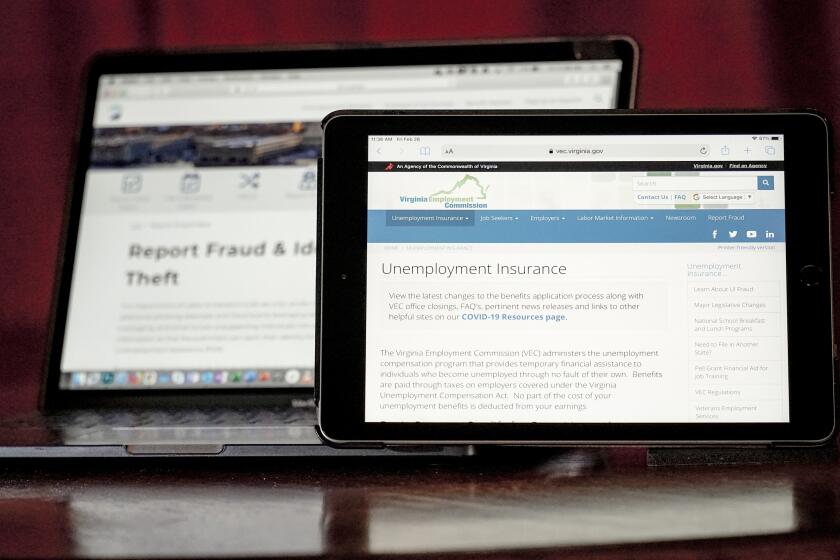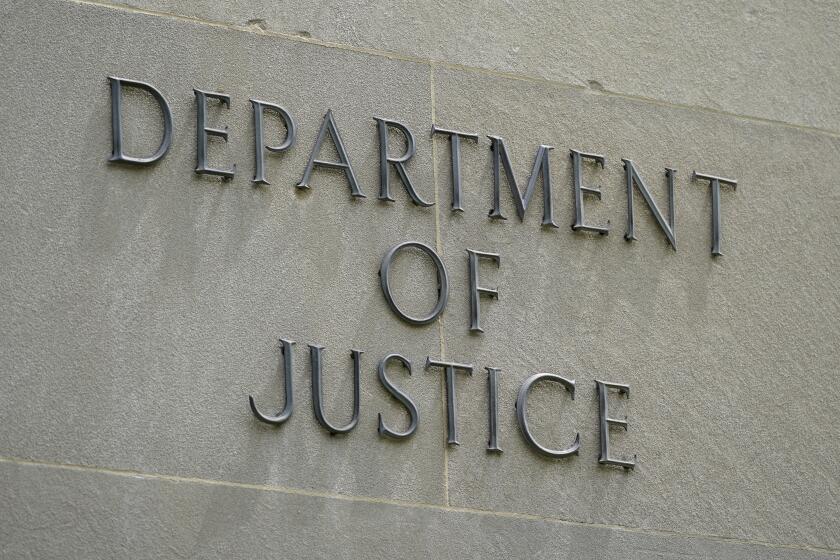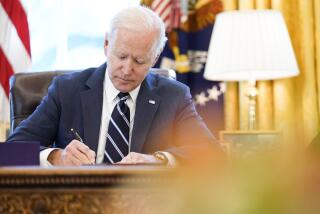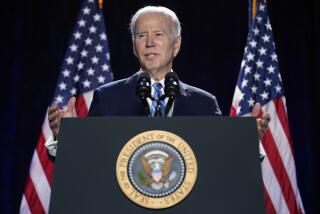Inspectors ask for authority to go after more COVID fraud
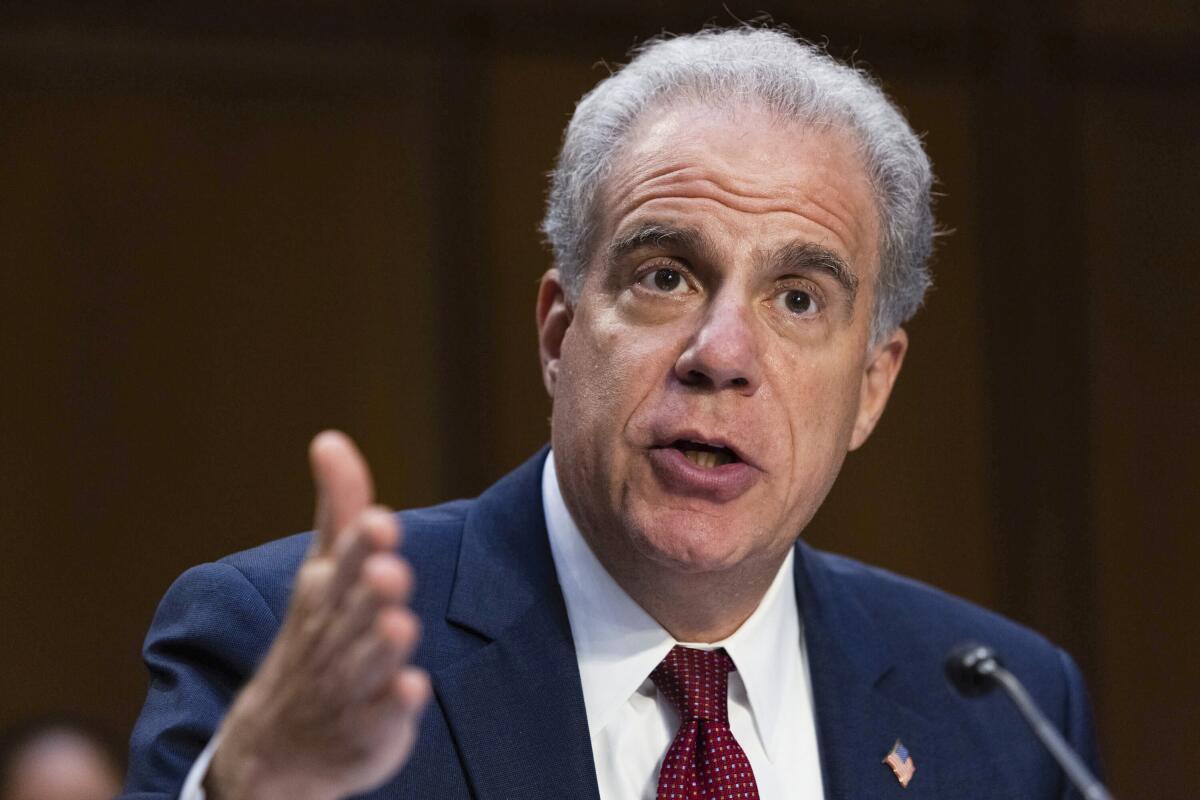
- Share via
Inspectors general need more authority to go after fraud in COVID-19 relief programs, the independent committee overseeing federal pandemic relief spending said Tuesday.
Government agencies’ watchdogs have the authority to administratively prosecute only those suspected of defrauding COVID-19 relief programs of $150,000 or less, and the Department of Justice is too busy for cases under $1million — leaving an $850,000 gap that must be closed, the Pandemic Response Accountability Committee said.
Michael Horowitz, head of the committee and inspector general of the Justice Department, said the $150,000 threshold is far too low given the scope of the fraud in programs set up to help businesses and people who lost their jobs due to the pandemic. He asked Congress to raise the maximum amount of a fraud claim that may be handled administratively to $1 million.
The request was highlighted in the committee’s semiannual report to Congress, released Tuesday.
“It can’t be the case that people come away from this thinking there’s a certain level of fraud that’s just OK, or a certain level of improper payments that’s just OK,” Horowitz said in an interview before the report was released. “We don’t believe that as [inspectors general], and we want to get to the bottom of that. So it’s a very important tool, and every dollar matters.”
Out of over $5trillion in pandemic relief spending, more than a million awards of less than $1million have been given out, according to the committee.
U.S. Secret Service says nearly $100 billion or more has been stolen from COVID-19 relief programs set up to help businesses, unemployed.
Inspectors general nationwide are focused on multimillion-dollar cases of alleged fraud that are turned over to the Justice Department for prosecution. Horowitz said he was not aware of any cases being brought for less than $150,000, though he said he did know of cases involving hundreds of thousands of dollars that they would like to prosecute administratively.
Most federal prosecutors do not pursue cases for under $1 million because they are overwhelmed with larger fraud cases, he added.
Sen. Charles E. Grassley (R-Iowa) is sponsoring a bill that would make the change. It has bipartisan support, and is co-sponsored by Assistant Majority Leader Richard J. Durbin (D-Ill.), chair of the Senate Judiciary Committee.
The Pandemic Response Accountability Committee was created by Congress in March 2020. It brings the inspectors general offices together to oversee pandemic relief emergency spending and to investigate fraud and improper payments involving more than 400 programs implemented by 40 federal agencies.
Seven Californians in healthcare-related industries are among 21 people arrested for allegedly defrauding the government of nearly $150 million.
The committee’s report to Congress also emphasized the need to better use the data the federal government already has, and to improve data collection — particularly when the prime recipient of a grant shares it with subrecipients — in order to follow the funding from the federal to the local level.
Billions in loans went to potentially ineligible recipients at the beginning of the pandemic because the Small Business Administration didn’t check the Treasury Department’s “do not pay” list, the report said. Billions also went to applicants with foreign IP addresses.
Horowitz said “simple data matching” at the agency level should’ve flagged, for example, a case the committee later uncovered in which hundreds of applications used the same phone number from a Texas gas station.
“That shouldn’t be the case, right? An agency should be able to figure that out,” he said. “That’s not sophisticated data analytics.”
Horowitz said that agencies have improved their ability to verify eligibility for pandemic relief payments, but that “there is still a significant way to go.”
The committee has set up a data analytics center, which it has asked Congress to keep in place for federal relief spending in future emergencies.
More to Read
Sign up for Essential California
The most important California stories and recommendations in your inbox every morning.
You may occasionally receive promotional content from the Los Angeles Times.
